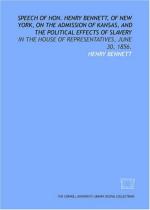|
This section contains 671 words (approx. 3 pages at 300 words per page) |

|
Ancient Slavery: Death Senetence or Life Opportunity?
Summary: Analysis of chapter 3 in 'Exploring the European Past'. It deals with ancient slavery and answering the question of whether it was an unescessary cruelty or a necessary part of the economic system.
In Aristotle's "Justifying Slavery" and Seneca's "On Master and Slave," the two authors express their opposing sentiments on the principles of slavery. While Aristotle describes slavery as predestined inferiority, evidenced greatly by physical attributes, Seneca emphasizes the importance of "philosophical" freedom as opposed to physical freedom. (p. 58). The authors' contrasting views are disclosed in their judgments on the morality of slavery, the degree of freedom all people possess at birth, and the balance of equality between a slave and his master.
In "Justifying Slavery," Aristotle, "who was well aware of moral issues," (p. 53). does not suggest in his writing that he recognizes slavery as immoral. Seneca, however, in "On Master and Slave," reveals his probable position that slavery is "inherently evil." (p. 58). Despite a stated awareness of moral matters, Aristotle professes that slavery is favorable and righteous, which reveals his time's common impressions of slavery: that slaves are...
|
This section contains 671 words (approx. 3 pages at 300 words per page) |

|


